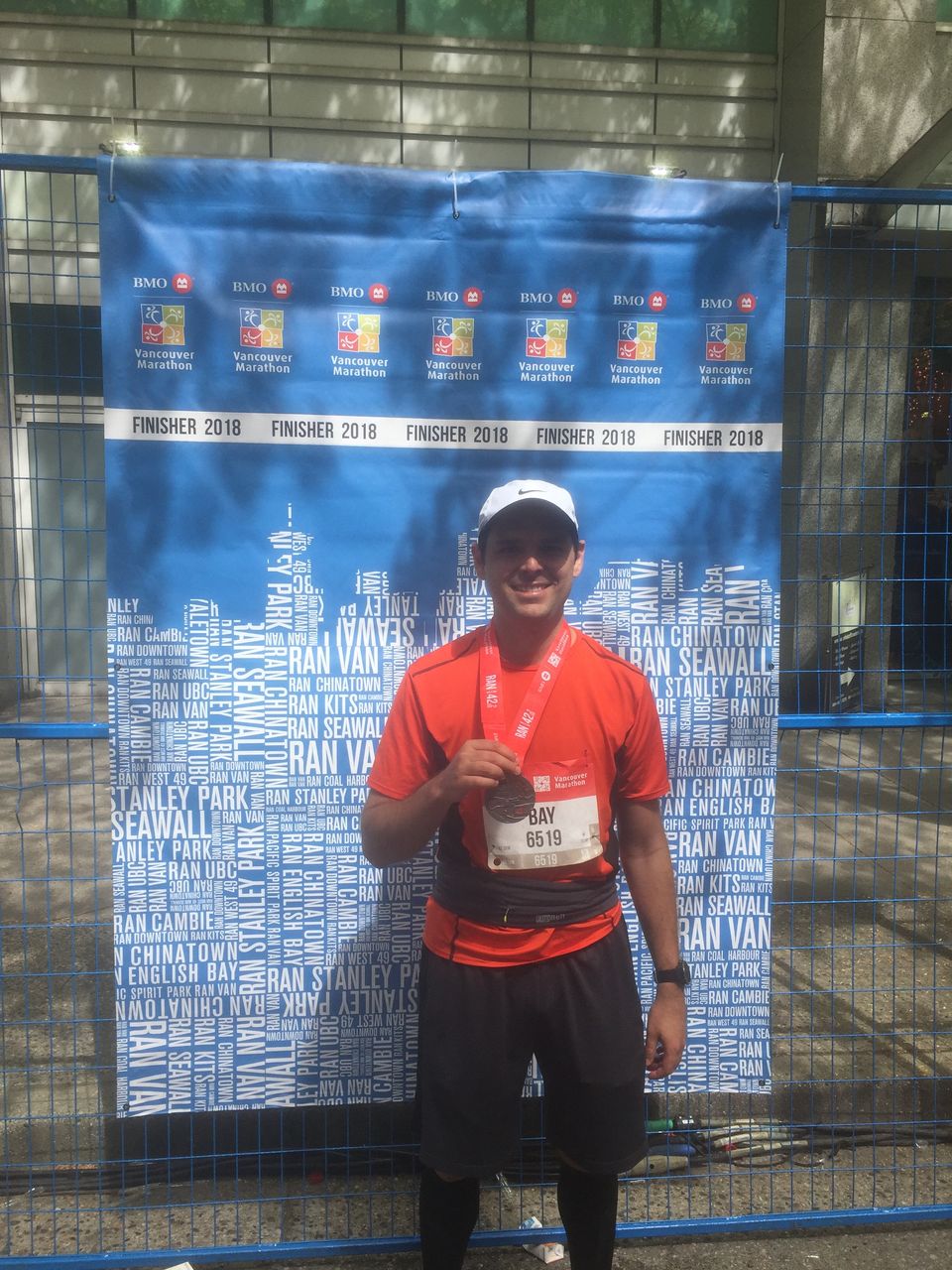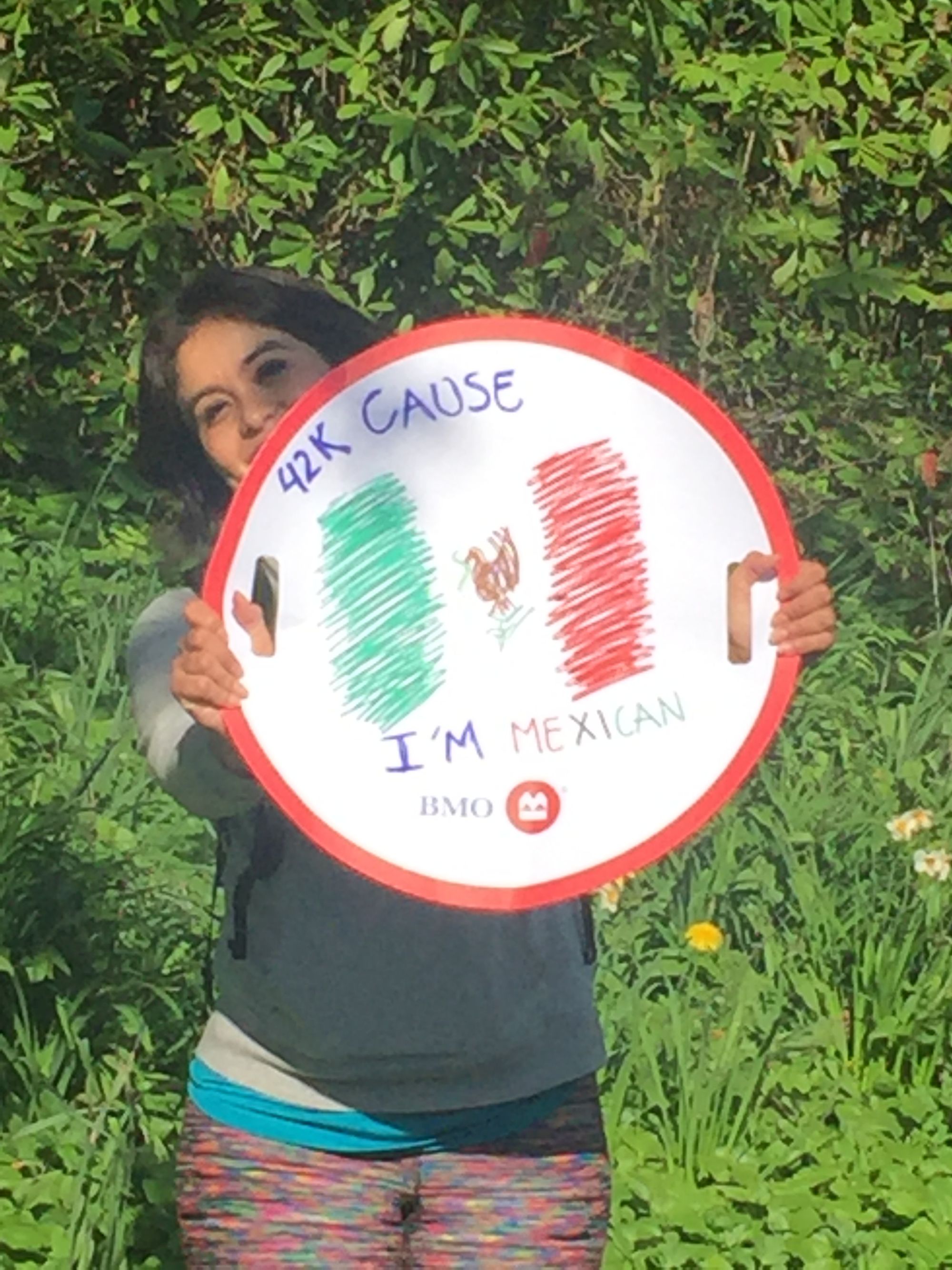My First Marathon: A Test of Endurance and Mental Strength

Running a marathon is an age-old challenge that originated over 2,000 years ago but has become popular since the days of the Olympic Games. According to legend, it dates back to 490 BC, when a messenger named Pheidippides ran from the battlefield of Marathon to Athens to announce the victory of the Greeks over the Persians. He covered a distance of around 40 kilometers and, upon reaching Athens, delivered the news before collapsing and dying from exhaustion.
When I first decided to run a marathon, I didn't have a concrete reason. It was more about saying, "I did it," and checking it off my LEVELL bucket list.
But as I started training, I began seeing the benefits of running beyond completing the challenge. Running gave me a sense of accomplishment and a feeling of empowerment over my own body. It helped me set goals and work towards them in running and other areas of my life.
So why run?
It's about proving to myself that I will achieve things I set my mind to. While training for a marathon, I had to abandon several attempts due to injury. It wasn't only until the third that I pushed through the training and completed it. Instead of letting pain stop me from training, I began to get help and strengthen the necessary muscles to avoid pain.
Running is about pushing past my perceived limits and proving that I am stronger than I think. And while there may not be a concrete reason for running a marathon, the journey toward the finish line can be a powerful one that changes us in ways we never thought.
I ran my marathon in May 2018. It was a great experience that took my mental and physical state to the extreme limit. It might have been the closest I have been to dying, but the best use of my logic in my life.
I experienced many emotions during the marathon as my body pushed through each race stage. Here's a recount of some of them.
Race Report
Pre-race: Exciting!
The pre-marathon excitement is hard to describe - there is something so special about knowing you're about to undertake such a challenge. I felt excited and nervous, and I remember trying to stay calm by FaceTiming with family and friends. I was dedicating the marathon to my cousin's daughter's health. As time approached, I let out a couple of tears and emotions.

0-5 k: This is great!
The first few kilometers were exciting, and I felt great. I was surrounded by other runners, and the crowd's energy was amazing. I remember thinking that this was going to be easier than I thought.
6-10 k: Getting tired, but let's keep going.
By the time I reached the 6-10k mark, I had begun to feel a bit tired, but I was determined to keep going. I focused on my breathing and tried to stay positive. It's still early.
10-20 k: OK, let's make a good half.
The 10-20k mark was crucial, as I realized I was almost halfway there. I pushed myself to maintain a good pace and reminded myself of my training.
20-25 k: Getting tough, but let's push through.
By this point, my legs started to feel heavy, and I struggled to maintain my pace. I focused on taking one step at a time and kept my mind off the fatigue.
25-30 k: What did I do? I might die… bye bye, 4:15 hrs.
The 25-30k mark was when I began to feel the total weight of the challenge. I realized I still had a long way to go and started doubting myself. I was afraid I wouldn't be able to finish.

30-35 k: Nausea, still over 10k to go.
At this point, I felt physically sick and nauseous. The finish line seemed so far away, and I remember feeling discouraged.

35-40 k: Dizzy, faint? Stop? Walk? Run slow? Bye-bye, 4:30 hrs.
The 35-40k mark was the most challenging part of the marathon for me. I was dizzy and dehydrated and had to decide: should I stop, walk, or run slowly? I knew I wouldn't make my goal, but I refused to give up. I kept pushing forward, step by step.
40-41 k: Where is the finish line?
By the time I reached the 40-41k mark, I was utterly exhausted, and the finish line still seemed so far away. I kept pushing myself, trying to ignore the pain and the exhaustion.
42 k: Finish line!
When I finally saw the finish line, I felt an overwhelming sense of relief and accomplishment. I crossed the finish line, and all the pain and exhaustion faded. I had done it - I had completed a marathon.
Running a marathon is not just about the physical challenge but also about the mental strength required to push through the various stages of the race. Listening to your body during training and race day is essential to avoid injury or dehydration. Pushing too hard during the race can have serious consequences, and it's critical to strike a balance between pushing yourself to achieve your goals and staying within safe limits. Ultimately, completing a marathon can be a life-changing experience that teaches us the power of determination, resilience, and the importance of caring for our bodies. So, if you're thinking about running a marathon, go for it, but remember to take it step by step and listen to your body along the way.



Comments ()